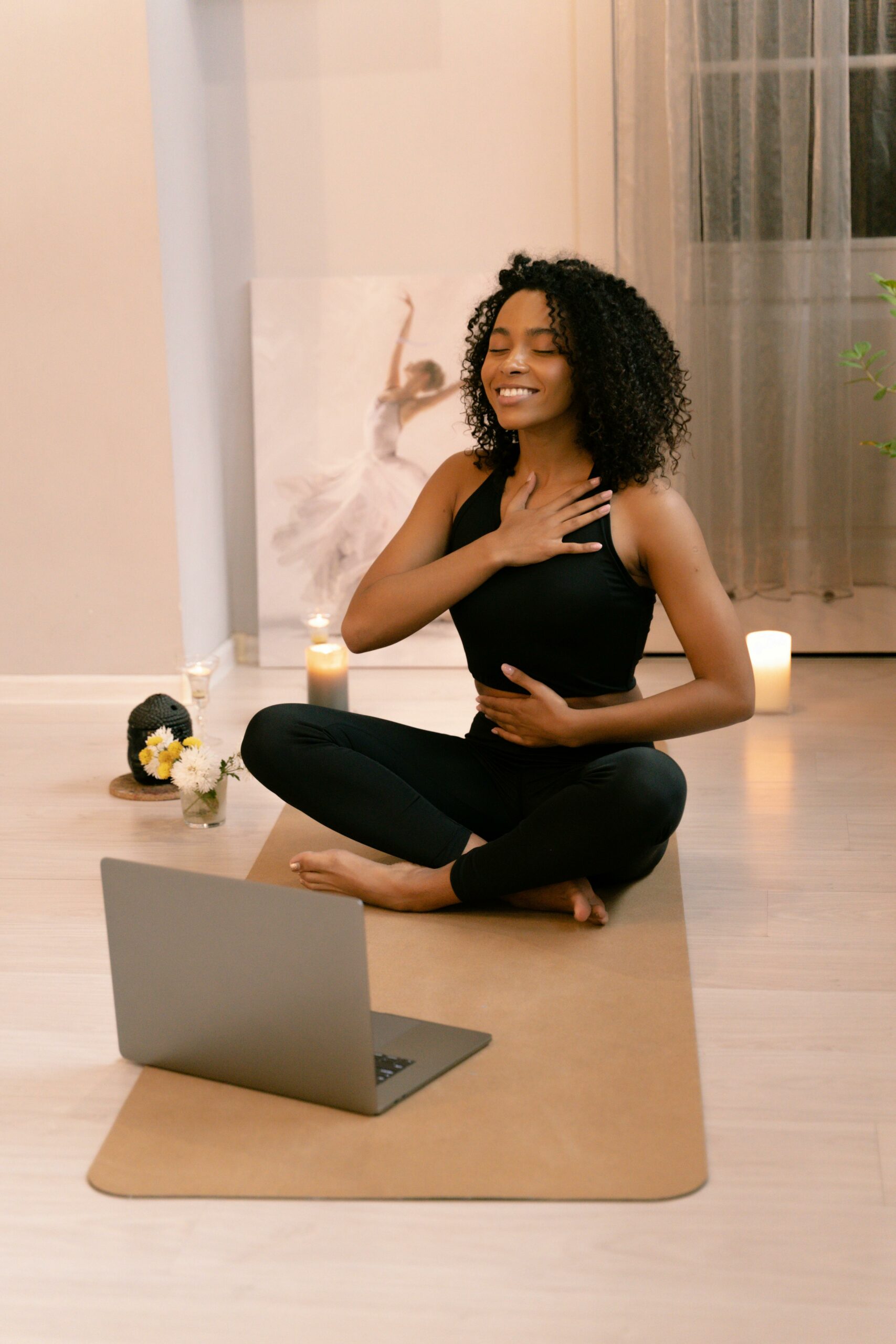
After the busy festive period, the New Year is always a great time to make positive changes and set goals for the year ahead, getting yourself into a healthy mindset.
You may already have some ideas for New Year’s resolutions, such as joining a gym, spending more time with family, looking for a new job or career path, or starting healthy habits. You might also be looking for ways to improve your mental health in 2023.
However, changing your routine or mindset can be difficult, but it is necessary as it’s important to reset your mind.
According to Clinical Psychologist Amy Glover, ‘Recovery from burnout very much comes in the form of rest and allowing one’s cup to be refreshed and renewed.’ This is why individuals need to cultivate a positive growth mindset to live a fulfilling life. The way we view situations, events and circumstances shape how successfully we’re able to navigate the challenges that life throws at us.
A growth mindset is one that allows us to view talents and potential as things that can be learned and developed as opposed to a fixed mindset that says that these abilities are natural and innate. When we embrace a belief that we can grow and improve, we experience greater degrees of empowerment and commitment. In order to embrace the new year, Amy suggests that we ‘set intentions, which are not necessarily New Year’s resolutions but rather the intentions that you can get excited about and bring joy to the little things, which may reach a larger goal’.
Perhaps this is the time to try something new as well. Starting off the new year on a positive note with a great mindset or good mental health can be easier as many of us are ‘happy and energetic’, and therefore ready to start off fresh. But how does one maintain good mental health throughout the year? According to Amy, ‘A good mental state is a well-rested, balanced and resilient one.’ This can therefore be achieved through these various activities according to a clinical psychologist:
Having good bodily rhythms and routines, which support your overall health and mental state, such as getting good quality sleep
- A balanced diet
- Staying hydrated and keeping active
- A good mental state can also be promoted by doing things that spark joy in your life
- Journalling is also a great way to keep track of your thinking and to have a space to process and monitor your mind and emotions
It’s normal, at some point in our lives, to suffer from some form of emotional or mental distress. We might feel a bit down in the dumps or just feel overwhelmed by our circumstances. On many of these occasions, it is natural to have certain feelings and emotions, and it is also important to allow yourself to feel emotionally balanced in the new year, which can be done through journalling.
According to Amy, ‘Journalling really helps us to take stock of our thoughts, feelings, experiences and also helps us to reflect and recognise our own challenges and growth. Be kind to yourself. Don’t push yourself too hard and be aware of the way you speak to yourself.’
‘Positive self-talk and daily affirmations can help with this. Accept things that happen instead of fighting them. Sometimes bad things happen and unfortunately we know we will encounter difficulty and distress in life. Learning to accept this as a reality allows us to practise a very important lesson; that we need to focus our energy on the things we can change and accept the things that are out of our control,’ says Amy.
Practising self-care in the year is required and therefore essential Self-care is important as it allows us to build it into our daily lives. Let’s review self-care practices.
6 different types of self-care according to clinical psychologist Amy Glover.
- Emotional
- Practical
- Physical
- Mental
- Social
- Spiritual
As you try and tap into the new year, it is also advised to try these other forms of self-care such as meditation, exercise, grooming, doing physically soothing activities, resting, setting boundaries and taking breaks. Make this year the year you consciously make self-care one of your priorities.

Bad habits we should unlearn in order to have a positive mental state in 2025
Most bad habits all have the same thing in common, which is that over time they make you feel worse, drain you or compromise your functioning in some way. In order to start unlearning these habits, it is important to get a grip on what your bad habits actually are. Recognising and admitting these habits would be the first step. Then evaluate the habit in terms of the cost (not only financial) vs. the benefit. This can begin an honest review of the outcome of continued cost to you over time.
Some habits that affect our mental state can be unhealthy consumption of social media content or being overly critical of one’s self. In these examples, it can help to take social media breaks to limit the harmful effects of media affecting one’s view of self or unhelpful comparisons.
Ways to prioritise your mental health
We prioritise our mental health by recognising we have mental health to take care of. We need to approach our mental health in the same way as we do our physical health. We need to focus on many building blocks that all build and improve our well-being and our overall happiness.
When our mental health is prioritised, we are managing stress levels, we are making use of self-care practices and we are part of a social community (be it with friends, family, religiously or via support groups or therapy).
Set boundaries in your workplace and home for the sake of your mental health and well-being
It is best to set boundaries early, for example, right when you start a new job. But it is never too late. First become aware of which boundaries you would like to set, and give yourself the time for this. It can be quite uncomfortable to say ‘no’ for the first time, to communicate a need or to make a particular request.
Once you are clear about the boundaries you need to set, and you feel comfortable enough communicating these, then start simple. When it comes to setting boundaries, make eye contact and be direct, factual and consistent.
You may also want to be prepared that your boundaries may upset others or there might be pushback, but trust in your needs. The goal of boundaries is to set them and communicate them, thereafter the responses or behaviour of others is out of your control.
You’ll grow more confident in this as you go, and displaying boundaries can actually foster or strengthen respect or can also model it to others on how to function with healthy boundaries.
Some practical daily tips to help you commit to keeping a healthy mindset are:
- Plan enough rest for your week
- Go outside every day
- Journal as often as you can
- Practise mindfulness
- Make use of healthy boundaries
- Practise self-care
- Reflect daily on things you are grateful for
- Surround yourself with support
- Do activities that spark joy as often as
you can - Visualise your future and allow yourself
to dream

It’s important to set mental health goals, especially during the times that we are living in where anxiety is high. Looking after our mental health is more important than ever. Not only are we living through a time of heightened anxiety and fear for vulnerable loved ones, but we’re also dealing with loneliness and enormous upheaval to the way we live.
‘I think it’s important to remember that prioritising mental health doesn’t always come naturally, and it’s something one needs to build and learn like a skill. Similarly to how we know that exercise
will not yield immediate results, we ought to treat mental health the same way. One step can make a small difference, but many steps together over time yield big results, which we will only see as time passes. Just a word of encouragement to those working on their mental health: It does get better!’ says Amy.
Originally published for print in BONA Magazine
Writer: Johana Mukandila
Also see: Benefits of starting your day with positive affirmations




